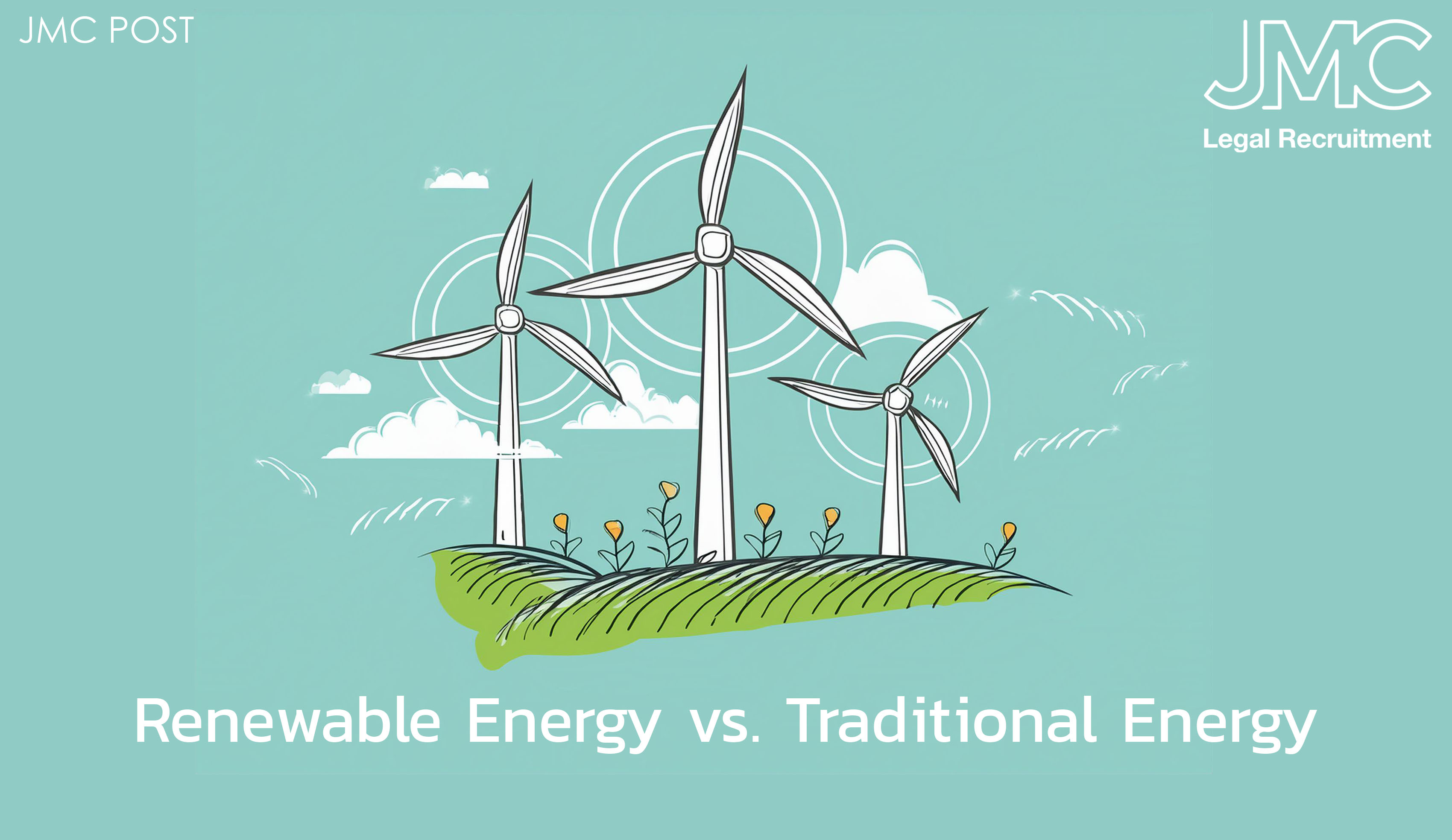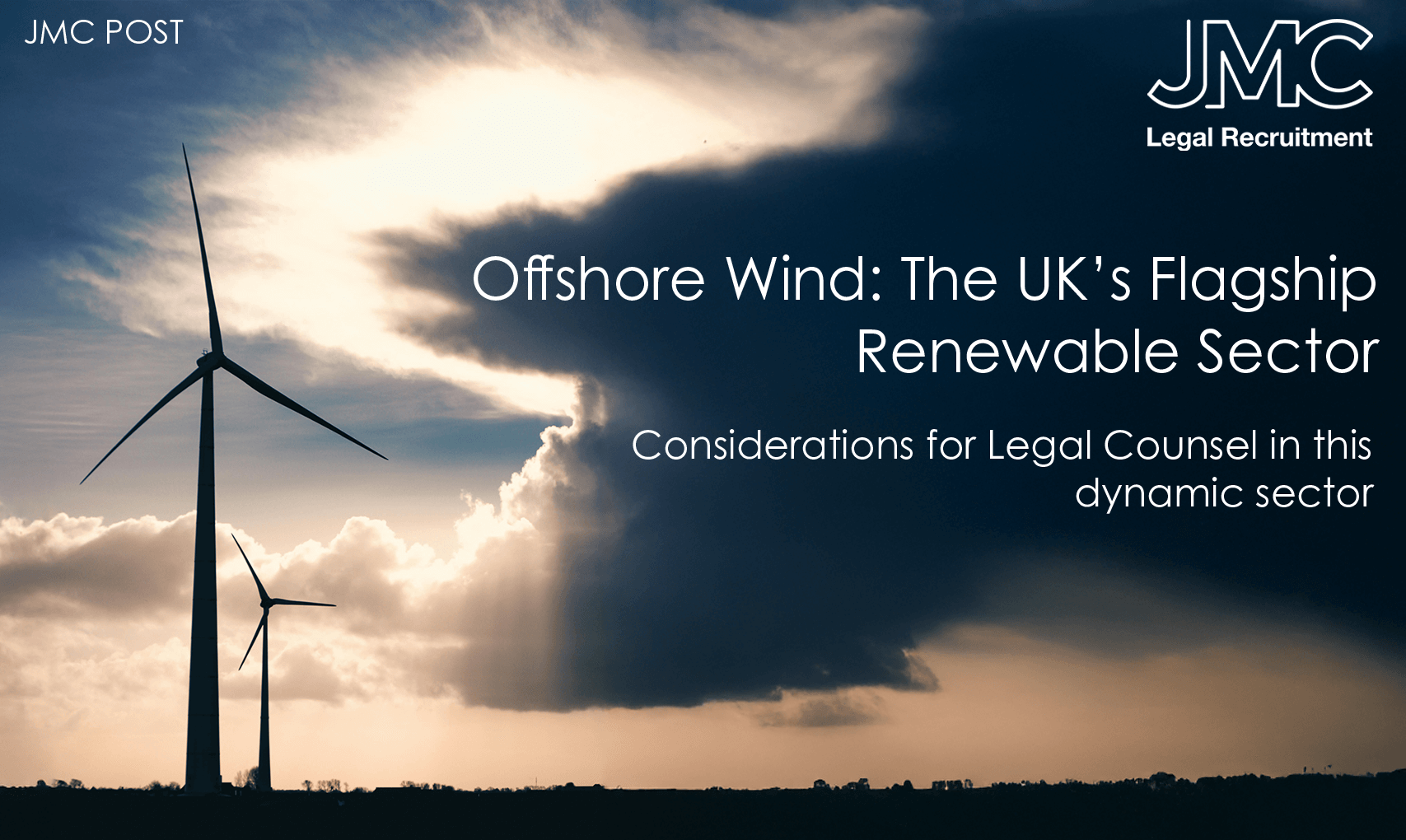Renewable Energy Vs Traditional Energy: Challenges for In-House Legal Counsel
10 Jun, 20246 minutes
The energy sector is pivotal to global economic stability, with in-house legal counsel playing a crucial role in navigating its complexities. Both renewable and traditional energy sectors present distinct legal challenges, reflecting their unique operational, regulatory, and technological landscapes. Understanding these challenges is essential for legal professionals striving to mitigate risks and support sustainable growth within their organisations.
Regulatory Landscape
One of the primary challenges for in-house legal counsel in the renewable energy sector is navigating the evolving regulatory landscape. Governments worldwide are continuously updating policies to promote clean energy, resulting in a dynamic and sometimes uncertain regulatory environment. Legal teams must stay abreast of these changes to ensure compliance and capitalise on new incentives and subsidies.
Conversely, traditional energy sectors, including oil, gas, and coal, face stringent regulations aimed at reducing environmental impact. Compliance with environmental laws, such as emissions standards and waste management regulations, is a significant concern. Legal counsel must ensure adherence to these regulations to avoid hefty fines and reputational damage, which are more prevalent due to heightened environmental scrutiny.
Contractual Complexity
The renewable energy sector often involves intricate contractual arrangements, especially for project financing and development. Power purchase agreements (PPAs), land lease agreements, and interconnection agreements are complex and require careful negotiation to balance the interests of various stakeholders. Legal teams must ensure these contracts are robust and flexible to accommodate future changes in technology and regulation.
In the traditional energy sector, contracts also play a critical role, particularly in exploration and production activities. Joint ventures, licensing agreements, and service contracts with suppliers and contractors need meticulous drafting and management. These contracts often span decades and involve significant capital investments, necessitating thorough risk assessments and contingency planning by legal counsel.
Intellectual Property and Technology
Renewable energy companies invest heavily in research and development to innovate and improve efficiency. Protecting intellectual property (IP) rights, including patents and trade secrets, is vital to maintaining a competitive edge. Legal counsel must navigate the complexities of IP law, ensuring their organisation’s innovations are safeguarded against infringement while also managing IP licensing agreements.
While traditional energy companies also invest in technology, their primary focus is on improving extraction and refining processes. Legal challenges often involve managing proprietary technologies and ensuring compliance with technology transfer regulations. Additionally, as digitalisation becomes more prevalent, issues related to data security and cyber threats are increasingly significant for in-house legal teams.
Environmental and Social Governance (ESG)
In the renewable energy sector, environmental and social governance (ESG) considerations are paramount. Legal counsel must guide their organisations in adhering to ESG standards, which are crucial for attracting investment and maintaining public trust. This involves ensuring transparency in reporting environmental impact, engaging with local communities, and promoting sustainable practices.
For traditional energy companies, ESG issues are equally critical but often more contentious. Legal teams must navigate complex stakeholder expectations, from investors demanding greener practices to communities affected by extraction activities. Managing these relationships and mitigating the environmental impact of operations are ongoing legal challenges that require strategic planning and communication.
Dispute Resolution
Dispute resolution in the renewable energy sector can be multifaceted, involving land use conflicts, contract disputes, and regulatory challenges. Legal counsel must be adept at alternative dispute resolution methods, such as mediation and arbitration, to resolve conflicts efficiently and maintain project timelines.
In the traditional energy sector, disputes often arise from environmental incidents, regulatory non-compliance, and contractual disagreements. These disputes can result in lengthy and costly litigation. In-house legal teams must be proficient in both litigation and alternative dispute resolution to protect their organisation’s interests and minimise operational disruptions.
In conclusion, both renewable and traditional energy sectors present unique challenges for in-house legal counsel. While renewable energy requires navigating a rapidly evolving regulatory landscape and protecting technological innovations, traditional energy focuses on stringent environmental compliance and managing long-term contractual obligations. Despite these differences, the overarching goal for legal professionals in both sectors remains the same: to mitigate risks, ensure compliance, and support their organisation’s strategic objectives.





